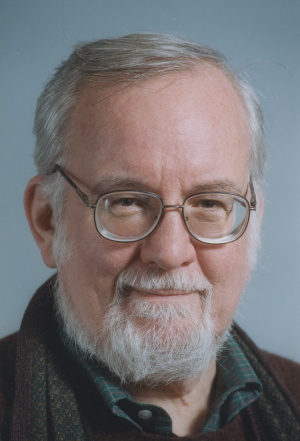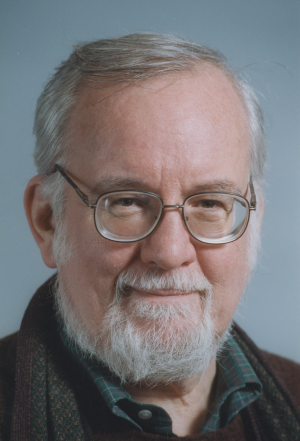We mourn the passing on August 30 of Professor Richard Van Slyke, who played an enormous role in positioning NYU Tandon at the forefront of telecommunications research.
 Richard Van Slyke was one of the founders of the Network Analysis Corporation (NAC), a telecommunications consulting firm, serving as a principal there until 1980 when NAC — at that point 100 employees strong — was sold to Continental Telephone. He then returned to academia, spending three years as a Professor of Electrical Engineering and Computer Science at the Stevens Institute of Technology, in New Jersey.
Richard Van Slyke was one of the founders of the Network Analysis Corporation (NAC), a telecommunications consulting firm, serving as a principal there until 1980 when NAC — at that point 100 employees strong — was sold to Continental Telephone. He then returned to academia, spending three years as a Professor of Electrical Engineering and Computer Science at the Stevens Institute of Technology, in New Jersey.
In 1983 the governor of New York designated NYU Tandon (then the Polytechnic Institute of New York) as a New York State Center for Advanced Technology in Telecommunications (CATT), and Professor Van Slyke agreed to cross the river to Brooklyn to serve as its first director and to teach. He later wrote, “The main objective [of CATT] was the idea of being a catalyst for joint activities in the newer technologies of communication and the companies that sold the technology and/or used it. … We had [an educational] forum, which had active participation by industrial people. The major thing I liked about Poly was this dual commitment to serious research and also to teaching.”
The forums ran for more than a decade, and during that period he also spearheaded two industry-oriented master’s degree programs, in Telecommunications Management and Information Systems Engineering.
During the 1995-96 academic year he took the helm of what was then known as the Department of Computer and Information Science, and at the time of his retirement, in 2005, after a tenure of more than two decades, he was named Professor of Computer Science Emeritus.
Despite his undisputed expertise in such areas as the design and analysis of algorithms, parallel computation, and database systems; his stint as vice-chair of the IEEE’s Committee on Computer and Information Policy; his time on the Telecommunications Educational Advisory Council of the National Engineering Consortium; and his dozens of publications, Professor Van Slyke is perhaps best known for his warmth and humor. “I’ll always remember his laughter, which was unique to him and which had the ability to make everyone feel welcome and comfortable,” Professor of Computer Science and Engineering Haldun Hadimioglu said. “You always felt that you were with a good friend when you were with him.”
Professor Emeritus of Computer Science and Engineering Henry Bertoni also mentioned his colleague’s laughter when he penned the following remembrance:
“Richard was a soft-spoken man with a ready laugh; he was at ease with new people and ready to consider new ideas. While my earlier research was outside of the area of telecommunication networks, in the mid-1980s I began to work on problems dealing with radio coverage for the then-new cellular telephone systems. At that time, only a limited number of people used cell phones. However, Richard saw the potential for growth in the service when others did not. In order for me to attend meetings in Washington, D.C. of an IEEE technical committee dealing with issues effecting cell phone service, Richard offered me travel support from CATT. He further supported the resulting research activity with the nearly full-time use of a mini-computer (computers and cell phones have come a long way in a mere 35 years). The resulting work became part of industry standards on cellular coverage. It was with Richard’s foresight and encouragement that Poly started its wireless program, which eventually attracted outstanding new faculty and students and is now the world-famous NYU WIRELESS research center.”
Professor Van Slyke held a B.S. in Physics from Stanford (1959) and a Ph.D. in Engineering Science from the University of California, Berkeley (1965). He began his career as a faculty member at the University of California, remaining there until 1969.
Professor Van Slyke will be deeply missed by all who worked and studied (and laughed) with him. Our deepest condolences go to his wife, Irene, and the rest of his family.
